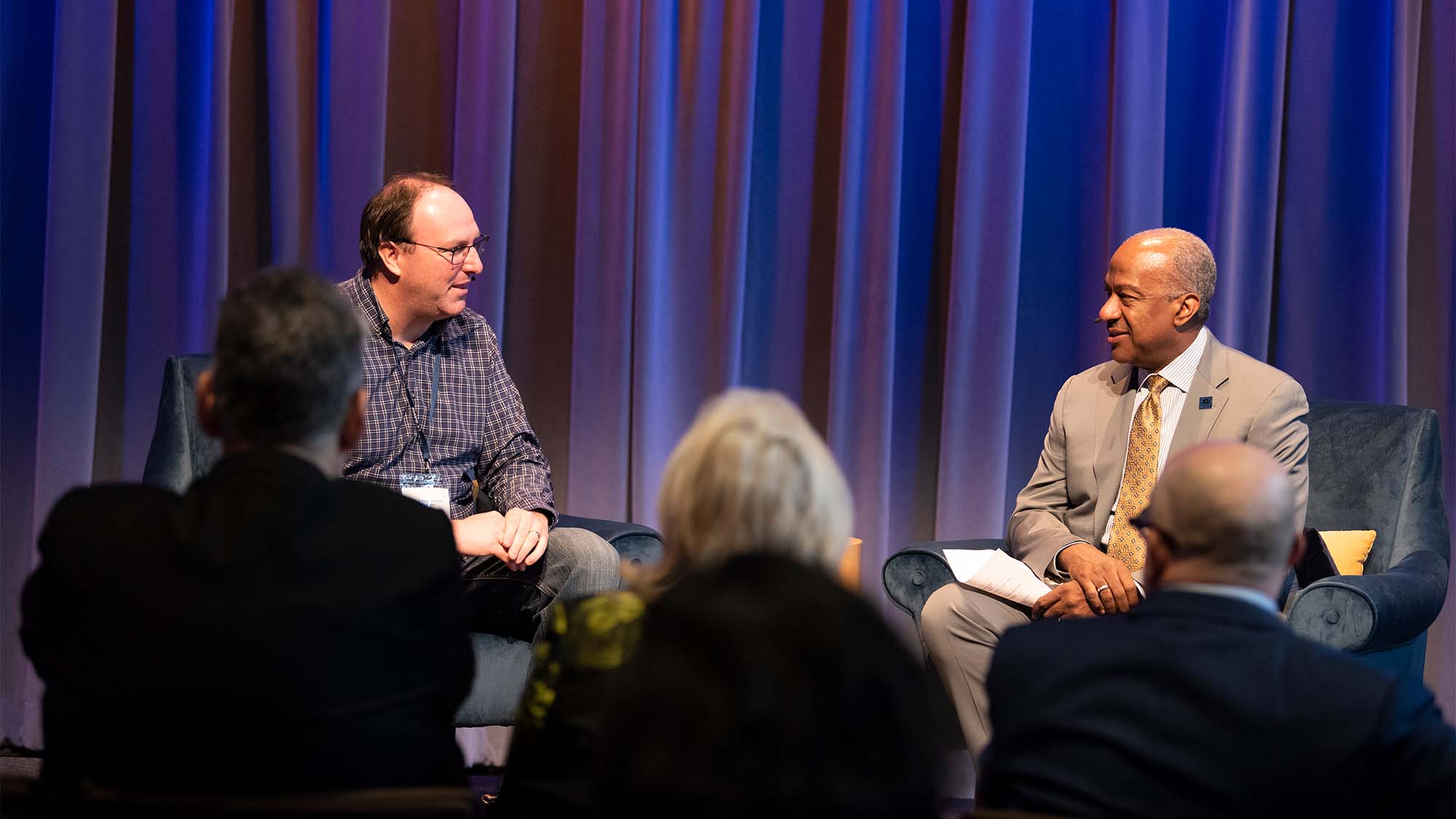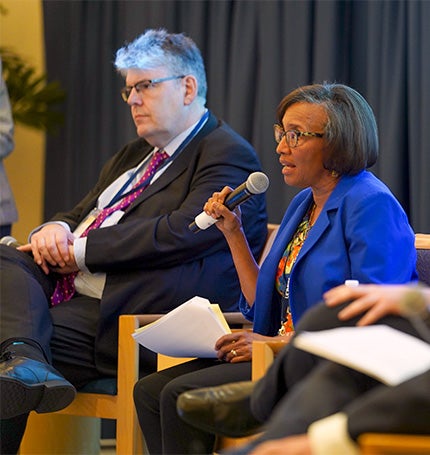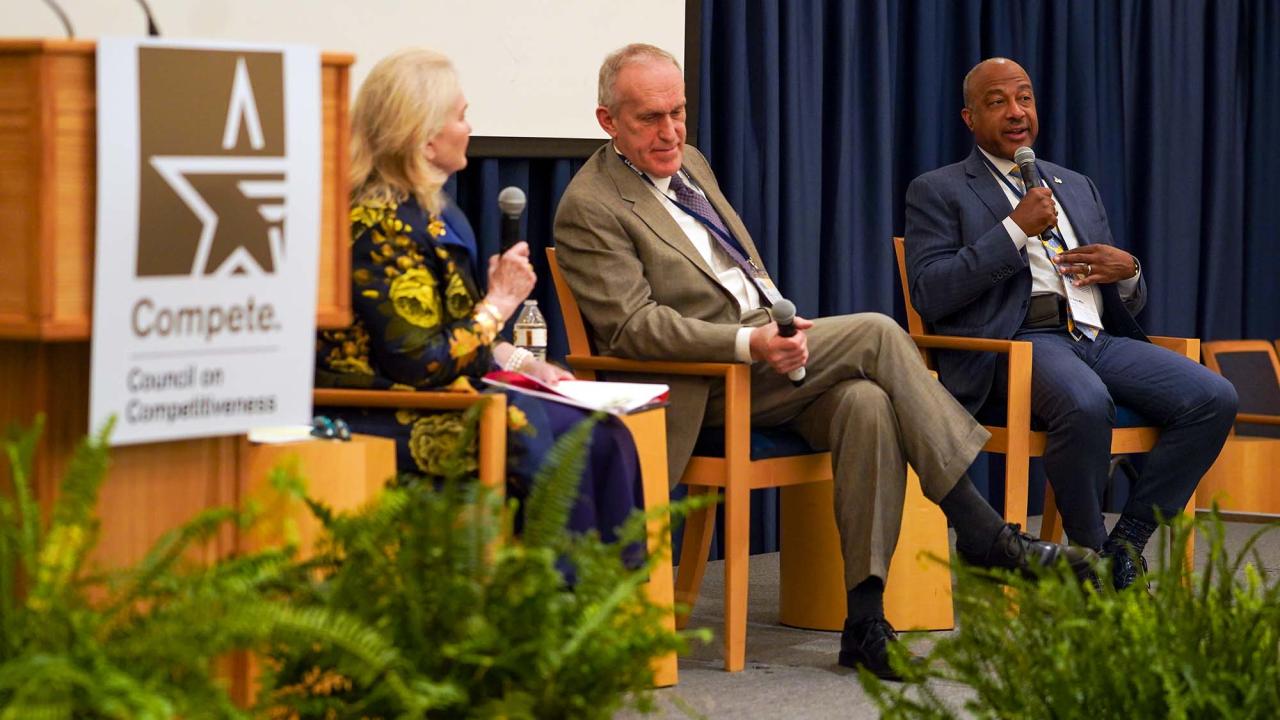If the United States is going to remain competitive in the global economy, the country needs more innovations from more people, faster — and UC Davis can be a guide in many areas, speakers said yesterday (March 27) during the first day of a “launch summit” hosted on campus by the national Council on Competitiveness.
“Here on the campus of UC Davis we are seeing place-based innovation in action,” said Deborah L. Wince-Smith, president and CEO of the nonprofit Council on Competitiveness.
The council’s National Commission on Innovation and Competitiveness Frontiers’ Phase 2 Launch Summit brought together university, research lab and workforce leaders for a two-day event that included presentations, panel discussions, breakout groups and tours of campus.
Chancellor Gary S. May stressed the importance of place-based innovation, that is, working with others in the region toward common goals.
“I think the interplay between the university, the industrial economics and government is so critical to innovation writ large,” he said, citing Aggie Square as a prime example.
An ideal host
UC Davis was the perfect place to host the event, said Chad Evans, executive vice president of the Council on Competitiveness.
“We have over 100 university members, but there were few places that made as much sense as UC Davis,” Evans said. “It has the national ecosystem at a local scale.”
He cited changing demographics and collaborative research, and how UC Davis has responded. “Davis is like a living laboratory for us,” he said.
The conference continues today with tours of some of UC Davis’ leading areas of innovation: One group will focus on food and agriculture, and another will focus on engineering.

Discussion will lead to policy recommendations
The conference also features four working groups on topics that will become major areas of focus for the Council on Competitiveness for the remainder of 2023, including virtual meetings over the summer, Evans said.
The topics are the future of sustainability, the future of technology, the future of work and the future of place-based innovation. The council will ask all of its national commissioners — including Chancellor May — to weigh in before the council issues a report with related recommendations by the end of the year.
The Council on Competitiveness, which was founded in 1986 and is based in Washington, D.C., seeks to advise lawmakers on ways to attract talent and investment, and to encourage the creation of new ideas. The CHIPS and Science Act signed last year by President Joe Biden aligned with many of the council’s recommendations, including some spelled out in a 2020 report, “Competing in the Next Economy,” the council said in a statement at the time.
A focus on sustainability
Some of UC Davis’ efforts around sustainability were on display on the first day of the conference.

Helene Dillard, dean of the College of Agricultural and Environmental Sciences, spoke on a panel titled “The Future of Sustainability: Driving Leadership in the Path to a Zero-Carbon Economy.”
“This is a campus where pretty much everybody rides a bike to work if they live in Davis or Woodland,” she told the audience. She also described agricultural research being done on campus, like efforts to reduce the methane emissions of cows by feeding them small amounts of seaweed.
Research from around the world was also showcased.
Paul Monks, chief scientific advisor for the UK Department for Energy Security and Net Zero and a professor of atmospheric chemistry and earth observation science at the University of Leicester, spoke about his government’s multifaceted plan to reach net-zero carbon emissions by 2050.
“There is no golden bullet in this,” Monks said. “It’s multiple small changes that make the system better and more optimized.”
The conversation will continue beyond the end of the summit: Chancellor May recorded an episode of Face to Face With Chancellor May during a break in the summit, talking innovation with Jed Kolko, undersecretary of commerce for economic affairs with the U.S. Department of Commerce, and Smith of the Council on Competitiveness. That interview is slated to be posted next month.
Media Resources
Cody Kitaura is a News and Media Relations Specialist in the Office of Strategic Communications, and can be reached by email or at 530-752-1932.
